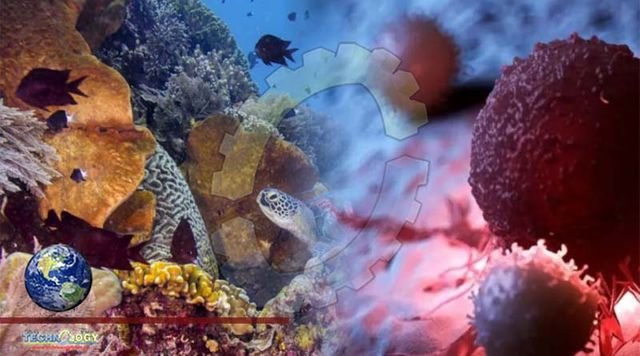Researchers find that sea corals are a source of a sought-after “anti-cancer” compound The ocean floor is riddled with mysteries, but scientists have just discovered one of its best-kept secrets. For the last 25 years, researchers have been looking for the source of a natural chemical that has shown promise in preliminary studies for treating cancer.

Researchers at the University of Utah Health report that easy-to-find soft corals flexible Sea Corals that resemble underwater plants make the elusive compound. After determining the source, the researchers went on to discover the animal’s DNA code for synthesizing the chemical. They were able to carry out the initial stages of re-creating the soft coral chemical in the laboratory by following those directions. “This is the first time we have been able to do this with any drug lead on Earth,” says Eric Schmidt, Ph.D., professor of medicinal chemistry at the University of Utah Health. He led the study with Paul Scesa, Ph.D., postdoctoral scientist and first author, and Zhenjian Lin, Ph.D., assistant research professor. The breakthrough opens the door to generating the compound in big enough quantities for rigorous testing, which could one day result in a new cancer-fighting tool.
Corals aren’t the only animals that harbor potential therapeutics. Nature is crawling with snakes, spiders, and other animals known to carry chemicals with healing properties. Yet that compounds from soft corals offer distinct advantages for drug development, Schmidt says.Unlike venomous chemicals that are injected into prey, Sea Corals use their chemicals to ward off predators that try to eat them. Since they are made to be eaten, the soft coral chemicals are easily digestible. Similarly, drugs derived from these types of compounds should be able to be given as pills with a glass of water, rather than taken by injection or other more invasive means. “These compounds are harder to find but they’re easier to make in the lab and easier to take as medicine,”
Scesa found the long-sought-after compound in a common species of soft coral living off the Florida coast—just a mile from his brother’s apartment. In the 1990s, marine scientists reported that a rare coral near Australia carried a chemical, eleutherobin, with anti-cancer properties. The chemical disrupts the cytoskeleton, a key scaffold in cells, and soft corals use it as a defense against predators. But laboratory studies showed that the compound was also a potent inhibitor of cancer cell growth. In the decades after, scientists searched but could not find the fabled “holy grail” chemical in the quantities needed for drug development and couldn’t remedy the problem without understanding how the chemical was made. Dogma had it that, similar to other kinds of marine life, the chemical was synthesized by symbiotic organisms that lived inside the animals.
Source: This news is originally published by scitechdaily